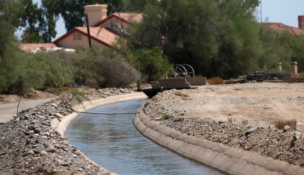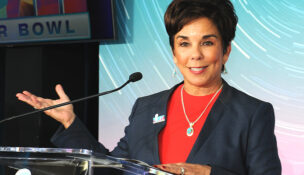New tax on liquor dead for now
Arizona Capitol Reports Staff//April 22, 2008//[read_meter]
Two years after helping usher in the largest tobacco tax in state history to fund children's healthcare programs, Arizona's liquor industry found itself the target of a similar levy.
But it appears the threat has dissolved, as a local political consultant has acknowledged that Phoenix Children's Hospital officials have "very recently" called off efforts to launch a ballot initiative designed to expand pediatric services with a new tax on booze.
"This group considered a variety of options in light of the looming budget crisis and the current economic and chose not to go forward with any joint effort," said Steve Roman, representing Healthy Arizona Kids, a ballot committee formed in late March by Robert Meyer and Larry Smith, the hospital's CEO and CFO.
Meyer and Smith were unavailable for comment.
In 2006, Roman's firm, Hamilton, Gullett, Davis and Roman, operated the campaign for Prop. 203. Known as First Things First, the initiative created an 80 cent tax on packs of cigarettes and put other fees on cigars and chewing tobacco to aid health care for young children.
The 2006 measure benefited from generous contributions from hospitals, medical organizations, and also the liquor industry, which, one political insider noted, took a curious role promoting the initiative.
"They bought their way off the ballot," said one consultant, who spoke on condition of anonymity. "And actually, I think it was a smart deal for them to stay out of it because that thing passed – and I don't think they could have killed it."
Roman, citing company policy, said he would not disclose whether Prop. 203's backers originally intended to add taxes to soft drinks and alcohol.
A quick glance through 2006 campaign finance reports reveals at least 10 of the state's liquor distributors or their company officers pitched in to contribute a combined $150,000 to First Things First for Arizona's Children, as the initiative was called.
A June 30, 2006, fundraising report showed contributions from Hensley Bottling Co., Golden Eagle Distributing, Alliance Beverage Distributing Co., Southern Wine and Spirits of Arizona, Canyon Distributing Co., and Alliance Beverage Distributing Co.
Bob Smith, president of Alliance Beverage Distributing, said he personally contributed money to Prop. 203 as a show of support to Nadine and Eddie Basha, who led the initiative, and own and operate Bashas' grocery stores – a regular Alliance Beverage client.
Smith said he informed officials from Phoenix Children's Hospital that he was fundamentally opposed to the ballot-initiative process and that he did not support efforts to increase taxes on alcohol. Smith said his company has shown considerable support to St. Joseph's Hospital, Tucson's University Medical Center and UMC's Sarver Heart Center.
"It's not like we're against helping our community," said Smith, who is convinced the effort will be renewed. "If anything, we've given more money and we've tried to raise more money and we'll continue to do that."
Jason Rose, of Rose and Allyn Public Relations, said he was not aware of big liquor courting favor by contributing to First Things First, but said the proposal's supporters also had considered additional taxes on soft drinks and alcohol.
"It (targeting alcohol) would have been political suicide in 2006," said Rose, speaking on behalf of Diageo, producer of popular drinks such as Jose Cuervo, Johnnie Walker, Captain Morgan's rum, and Guinness beer. "And it would have been political suicide in '08."
Rose applauded news that Healthy Arizona Kids stopped their effort, noting he believed the matter "would go down in a blaze of glory" if presented to voters in November.
The widely used consultant warned of the industry's continued vigilance against a possible tax on alcohol, promising victory "this (election) cycle, next cycle or cycles thereafter" if the matter is resurrected.
And Arizona's liquor interests are fully backed by the hospitality industry, according to Steve Chucri, president of the Arizona Restaurant and Hospitality Association, a group representing 2,000 restaurants.
In early April, the industry's leaders were united and bracing for a fight. They were interviewing consultants, Chucri said, who could campaign against an alcohol-tax initiative.
"Their causes are very worthy, but we want to ensure the mechanisms they will be utilizing down the road are ones that aren't raising taxes on a single industry that has no relationship to healthcare," he said, speaking to the goal of improving children's health care.
According to Chucri, an additional tax on alcohol would devastate Arizona's hospitality business, which is already reeling from a stagnated economy.
Sales during this year's first quarter for fine dining establishments "have gone flat," casual-dining restaurant sales have dropped 8-12 percent and quick-serve food businesses are 3 percent off their usual sales levels, he said.
Backers of the halted Healthy Arizona Kids effort sought cooperation with other hospitals and organizations, including Tucson's University Medical Center, St. Joseph's and Banner Health.
Jason Bezozo, a lobbyist for Banner Health, said the organization was contacted by proponents of the measure, but ultimately decided it was "not comfortable supporting something like that."
Likewise, St. Joseph's explored the possibility but its board chose not to move forward, said St. Joseph's spokeswoman Kimberly Lodge.
















